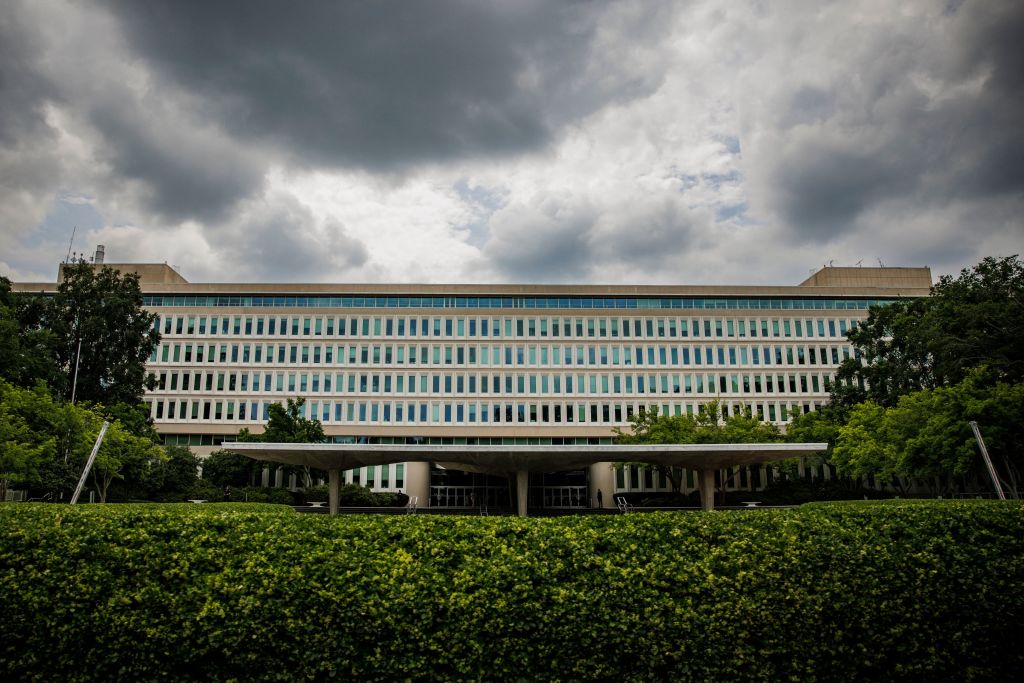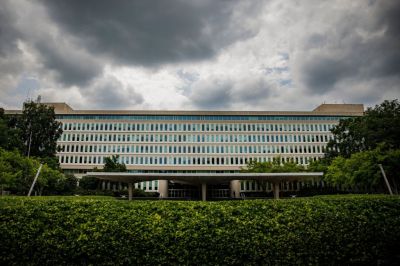How much of a problem does the CIA have handling claims of sex crimes within the agency? Enough of one to warrant attention from Congress. Since January, the House Intelligence Committee has interviewed several dozen women who’ve made allegations as part of an oversight investigation, and the Senate Intelligence Committee has demanded a parallel investigation by the CIA’s inspector general. And last month, the committees’ bipartisan leaders sent an urgent letter to CIA Director William Burns expressing concern about the agency’s mishandling of such claims.
The agency’s initial response, in bureaucrat-speak, that “there is no tolerance for sexual assault or harassment at CIA,” belies that the CIA had indeed tolerated its officers’ sex crimes. To his credit, Burns immediately pledged full cooperation with these probes, and as a career diplomat and outsider to the CIA, he’s well-suited to implement change. Last Thursday, CIA announced it would overhaul its processes for handling sexual assault, hire an expert from the Navy’s sexual assault prevention program, create an internal task force, and issue guidance on reporting sex assaults.
My law firm represents, pro bono, the first whistleblower to speak to Congress, a married female trainee with a graduate degree and long family tradition of distinguished military and agency service. She reported that a male colleague, who had repeatedly asked her out and sent her lewd messages, snuck up behind her in a stairwell and strangled her with a scarf while making sexual remarks and trying to kiss her.
The trainee immediately reported this assault to her supervisors, security, and eventually 13 other offices within the CIA. She states that in return she received conflicting, often unethical, and even illegal advice, which left her feeling more like a perpetrator than a victim: She shouldn’t tell her family. She couldn’t try to get her assailant to admit his actions. She shouldn’t speak to law enforcement, or the agency would no longer protect her. If she did speak to police, she must lie to protect her assailant’s cover, as his privacy interests are paramount. She’d permanently damage her career if she sought mental health assistance. Her assailant might sue her for defamation. “Equal employment opportunity” officials discouraged her from complaining for the same reasons, and asked why she thought she’d been sexually assaulted if she hadn’t been raped.
CIA security officials stated they would not cooperate with state or local law enforcement. The agency’s legal guidance to officers about speaking to law enforcement flatly violated federal statutes regarding false statements and witness tampering; victims who follow this bad advice may find their good faith complaints un-prosecutable. The U.S. Attorney’s Office for the Eastern District of Virginia also seems to have failed in their obligation to fully investigate a felony assault by one federal employee upon another on federal property.
When the trainee finally complained to local law enforcement, the agency refused to grant police access to CIA headquarters to serve the suspect with legal process, and at first even to confidentially confirm that he worked for the agency. It is as if the CIA considers itself somehow exempt from criminal provisions of the U.S. Code and its domestic facilities to be no-go zones for police.
When I served as a junior case officer in the CIA, I noticed the droit du seigneur attitude of some senior men toward my female colleagues, which is bad enough, but I didn’t think this went beyond harassment. Since last month, counsel have been deluged with messages from dozens more CIA officers with similar stories of alleged crimes, including rape, by agency personnel on agency properties.
A dark thread runs through these accounts. Women are dissuaded from filing EEO complaints by that very office at CIA, which cites spurious claims of “national security” and false assurances that assailants will cease misbehaving. They receive no assistance (or worse) from the CIA in speaking with law enforcement. Senior women often encourage alleged victims to keep stiff upper lips, while usually nothing happens to the men accused.
Subsequently, managers and personnel officers whisper that the women made unsubstantiated allegations (which is strictly speaking true, as their claims are not investigated and adjudicated), and suffer mental problems (especially if they understandably seek professional help after surprise, violent attacks by colleagues). Their “hall files”—informal reputations within the agency—are ruined, good assignments and promotions are lost. Some are pretextually accused, in retaliation, of penny-ante, time-and-attendance fraud, the last refuge of security office scoundrels.
Young women usually cannot afford counsel on their government salaries, and the agency must approve and grant security assistance to their lawyers, and even those attorneys’ court filings. Many victims silently leave the CIA in frustration, and under criminally enforceable lifelong secrecy agreements.
Beyond the violence and injustice done to patriotic young women, all this represents a serious national security problem.
First, espionage is not pro football or heavyweight boxing. The CIA needs both the very best men and women to collect human intelligence in certain environments.
Second, it’s expensive to recruit, vet, train, and provide durable operational covers for the few top university graduates both capable of doing clandestine work in dangerous places and willing to forgo more lucrative private sector careers. It’s a waste of talent and taxpayer funds to lose anyone with those skills—male or female—over something as reasonably preventable, in a modern professional environment, as workplace sexual violence.
Third, what about male officers who remain with the agency despite demonstrated proclivities to assault women? If they repeat similar misconduct overseas, they’re prime targets for recruitment, through blackmail by hostile foreign security services. We know about agency officers such as Andrew Warren and Brian Jeffrey Raymond, convicted in the U.S. of drugging and raping at least 28 foreign women while posted by CIA to Algeria and Mexico. How many others were quietly turned against us by adversaries and remain undiscovered?
Congress is doing the right thing now in investigating this crisis and demanding further inquiry by inspectors general. The House and Senate Intelligence Committee staffs, and the CIA IG staff, all spent several hours with my client and treated her with compassion, dignity, professionalism, and respect. I strongly encourage other victims to speak to both Congress and the agency’s IG. The House intel and IG investigative reports, and any legislative or administrative recommendations they contain, will be key documents for policymakers going forward.
Last Thursday’s announcement by CIA Director Burns is a big first step in the right direction, but it emphasized the creation of an internal task force, likely staffed by the same people who presided over the current dysfunction. Few of them, if any, have criminal investigative or prosecutorial experience.
Ultimately a cat can’t skin itself. Large organizations such as banks and businesses or police and fire departments suffering systemic problems with bribery, civil rights, export control, or sanctions violations, for example, also end up investigated by outside counsel, and subject to long-term compliance programs, often supervised by former federal prosecutors and monitored by federal judges. Workplace sexual violence is no less serious of an institutional problem than, say, money laundering.
As Supreme Court Justice Louis Brandeis famously wrote, “Sunlight is said to be the best of disinfectants.” Director Burns didn’t create this mess. He inherited and is trying to fix it, but it is not yet clear that he is operating based on accurate information about it. On behalf of beleaguered female CIA officers, he might helpfully invite such independent scrutiny of his agency’s response to sexual assaults.






Please note that we at The Dispatch hold ourselves, our work, and our commenters to a higher standard than other places on the internet. We welcome comments that foster genuine debate or discussion—including comments critical of us or our work—but responses that include ad hominem attacks on fellow Dispatch members or are intended to stoke fear and anger may be moderated.
With your membership, you only have the ability to comment on The Morning Dispatch articles. Consider upgrading to join the conversation everywhere.